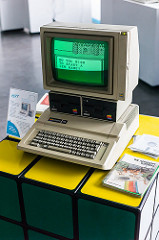
Welcome! Click on a tab below to find books, articles, and websites for use in this course.
You'll need a College of DuPage Library card in order to use most of these resources from off campus.
Questions? Feel free to contact me, stop by the Reference Desk, or contact us by email or chat
Want to know more about the COD library? Check out our orientation video.
Controversial Environmental Issues
Trying to pick a controversial issue related to the environment? Try looking at library databases Issues and Controversies (look for the Energy and the Environment section) or CQ Researcher to get started getting some background data.
Life Cycle Assessment
Your professor has a great guide to picking a (simple) item in your instructions. After you do this, you might want to Google a bit to find the components of your item, just to start getting a list together.
Finding Books on Your Topic
For either topic, start by searching our catalog. You'll want to search by keywords that define your topic: for example, look for "Coffee production" or "Coffee and Environment" rather than coffee and life cycle.
Once you start to find books that look interesting, click on the title of the book and then on the Description to see more info about the title. You'll want to look for three things: the table of contents, the subject words, and the summary of the title. These will help you to know if your topic is focused enough.
Once you've decided that a book is helpful, write down the following and head to the Reference Desk. We'll help you find the book:
- The Title
- The Location (often "General" or "Reference"
- The Call Number (a string of numbers and letters, such as TX415 .P46 1999
Finding Articles on Your Topic
Databases can help you with a couple of types of sources for your paper. For the Environmental Issue paper, you can use newspaper and magazine articles as evidence of different viewpoints on your topic. Journal articles will help you hunt down specific details that will help you evaluate those claims. Details about production or the environmental impact of a type of material may show up in either newspaper or journal articles for the Life Cycle Analysis paper.
Best bet databases:
Academic Search Complete has a mixture of types of articles (both journals and magazines/newspapers) on a wide variety of topics. Start here and then move on to other database options.
Science Direct is a scientific scholarly article database and might provide necessary details for your paper.
National Newspapers Core includes the full-text of the Chicago Tribune, the New York Times, the Washington Post, the Wall Street Journal, and other major newspapers. It's definitely worth a look to see if you can find evidence of "Opposing Viewpoints" or long articles here.
Scientific American is a respected scientific magazine and can be found in full text through Academic Search Complete. Need an image or table from your article? The journal is in full-text in JSTOR except for the current 5 years, and we retain two years of the most current issues in our print collection.
Finding and Evaluating Online Sources
Some of you will find many of your sources using a search engine like Google. Just as in the databases, you'll want to be careful about how you frame your search. For example, if I google "What's in a Pencil?" I get resources different than "#2 pencil components."
Secondly, some of the sites you will find will offer other clues for finding information. This site on how pencils are made has a list of resources at the bottom. This is your cue to begin searching our catalog and databases to see if you can find any of the books or articles mentioned.
For those of you working on the Life Cycle Assessment paper, the EPA has several websites you might be interested in, including Design for the Environment Alternatives Assessments, Design for the Environment Pesticides, Chemicals and even Detergents. They also have a site that talks about Climate Change and the Life Cycle of Stuff.
Other tips:
- Want to search only governments or educational sites? Try adding site:.gov or site:.edu to your searches to see if this helps you to find more credible information.
- Wondering if you've got a good or bad source for your project? Check out our library's guide to evaluating websites.
- Remember that you'd evaluate a video you found through YouTube in the same way you'd evaluate a website.
- Feeling lost or confused about anything on this guide? Email me and I'll be happy to help.
Using APA Style
Find directions about how to cite your sources on the library citation guide.
Most databases will have a Cite link that you can also click to get article citations.
Finally, you are welcome to use NoodleBib if you'd like to use a program to create and organize your citations. You must "Create a New Folder" when you use NoodleBIB for the first time. Click on "I am citing a(n):," choose the type of item you are citing, and then fill in the online form. Your bibliography will be formatted for you.
Further questions about APA style? Check out the Purdue OWL APA website, which includes sample papers.